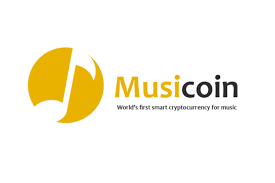STEEM governance: An open future question?

This is an open-ended question about the future of STEEM governance, bringing up the question of large but dormant accounts. Perhaps it is an issue that is dealt with in code, but I thought it would be interesting to bring up the question publicly to see if other people have already thought about it.
In the dPOS model of governance that STEEM has adopted, the leading witnesses are essentially our representatives for the direction of all things STEEM related, as they will be to ones to "vote" on which versions of STEEM they will run during a hard-fork event. So far, things in that governance model have been (relatively) smooth despite some (personal) concerns about granularity and the ability to dissent among the top witnesses. However, that isn't the scope of this post...
A quick review of the current witness list on STEEM currently reveals community members and independent developers with personal interest in the well-being of the STEEM blockchain and ecosystem. This is a good thing, as most of the witnesses in the top grouping have a technical and long-term economic interest in the well being of both the blockchain and the communities that are integral to the network's intrinsic worth.
However, it is possible that this state of affairs in the top witnesses might not be always the case... and might be nothing more than a temporary aberration in governance. Over the past year, the EOS ecosystem (which employs a similar dPOS) model has had the leadership positions change from mostly community and independent developers to large exchanges (as voting power is tied to tokens held/locked) with backroom quid pro quos appearing to be the norm among the large exchange accounts.
My question: Is it possible that this could happen on STEEM?
The current situation is that the large exchange accounts appear to have stayed out of the governance game here on STEEM. I would argue that this is not a stable situation as it appears to be born from a lack of economic incentive, and if #newsteem has taught us anything... accounts tend to behave in a economically advantageous way, with morality being papered over as an afterthought (/snark... I do prefer #newsteem over #oldsteem... but let's not pretend it is due to people finding their better selves!).
IF STEEM is going to be successful in the future, this economic balance WILL shift... making it more interesting for large and currently dormant accounts to start thinking about the possibility of having a witness. If the exchanges start offering staking rewards (like they are starting to do with other staking coins) to users for holding STEEM on their platforms... then there is an economic incentive (possibly greater than being minimally active on the platform...) for people to "store" their STEEM on exchange to gain a sort of passive income which would be funded by the block rewards from an exchange top witness.
Now, this could also be possible with large community accounts as well, although the danger there is somewhat lesser, as the community accounts would have a different interest in the long-term direction of STEEM compared to the exchanges... and more to the point, their holdings are (and would likely continue to be) orders of magnitudes less than the exchange accounts. The only exception to this is the Steemit account, but so far I believe that they have refrained directly participating in the voting process.... at the very least, not running their own witness.
Now, there is no reason why exchanges (and communities) shouldn't be able to run their own witnesses and participate in the governance process. However, if they do, and do decide to vote for themselves (or quid pro quo)... this is not necessarily good for STEEM governance in general. Likewise, it could be possible for the exchange accounts to heavily influence the outcome of SPS proposals....
The argument is there that there is an economic incentive for exchanges to be invested in the long-term survival of STEEM over the short term gain in block rewards... this is true, however, we have seen on other dPOS blockchains, that this is not seen to be the case in the real world. It is a good game theory, but evidently there is an incorrect assumption in assuming that exchanges are particularly invested in the long-term health of any SINGLE particular blockchain.
So, this is a potential problem for the future... this is situation that possibly will never pass... but given the right economic incentives, there is no reason why it wouldn't. Is it something that we, as a community, should be thinking about? Perhaps there are already contingency plans in place... or some sort of way to mitigate in code already?

Coin Tracking
Looking for a quick and easy way to keep track of your cryptocurrencies? Coin Tracking offers a free service that includes manual tracking or automatic tracking via APIs to exchanges, allowing you to easily track and declare your cryptocurrencies for taxation reports. Coin Tracking can easily prepare tax information sheets that are catered to each countries individual taxation requirements (capital gains, asset taxation, FIFO). Best to declare legally and not be caught out when your crypto moons and you are faced with an unexpected taxation bill (unless you are hyper secure and never attach any crypto with traceable personal information, good luck with that!).

Keep Your Crypto Holdings Safe with Ledger
Ledger is one of the leading providers of hardware wallets with the Ledger Nano S being one of the most popular choices for protecting your crypto currencies. Leaving your holdings on a crypto exchange means that you don’t actually own the digital assets, instead you are given an IOU that may or may not be honoured when you call upon it. Software and web based wallets have their weakness in your own personal online security, with your private keys being vulnerable in transit or whilst being stored upon your computer. Paper wallets are incredibly tiresome and still vulnerable to digital attacks (in transit) and are also open to real world attacks (such as theft/photography).
Supporting a wide range of top tokens and coins, the Ledger hardware wallet ensures that your private keys are secure and not exposed to either real world or digital actors. Finding a happy medium of security and usability, Ledger is the leading company in providing safe and secure access to your tokenised future!

Account banner by jimramones




.gif)


Some of the largest accounts only hold liquid Steem like @huobi-withdrawal
Unless they have Steem Power, they don't really deserve much influence.
My guess is if they disagree with how Steem is being operated they will either make their positions clear or sell.
A lot of exchanges and funds don't want to get into governance because it will create a split in their community, too.
Yes, but with EOS it is similar... You only have voting rights if you stake and your liquid eos can't be used for voting (from memory...)
We have made good steps with STEEM - whenever someone tells me we should lower the 13 week powerdown to come in line with other dPOS, I will link them to this article.
Yes, I forgot to mention that... The 13 week power down is the biggest obstacle to gaming the system like this.
An interesting concept to have stake on an exchange. What would you suggest the power down period be for that should it happen? Matched to what it is currently on steemit at 13 weeks?
It could be something similar to these "miners" that are on steem engine where you get a roi for holding and staking on an exchange.
To be honest, I'm not sure exactly the technical ins and outs of it but the changes we're going through are at least a step in the right direction with the latest HF... Baby steps of course 😁
Posted using Partiko Android
The exchanges already have a "stake" on STEEM if they already have wallets here. So, they can reliably freeze some of it to allow themselves to vote themselves to the major witness positions. It is what they already do on EOS. However, STEEM is protected in part but the long 13 week powerdown, so they are vulnerable against large calls against their balance if it is locked up...
At the moment, quite a few exchanges are gaming around with the POS protocols... it is interesting for people don't know how to capture inflation for themselves, but a little worrying when it starts impacting upon the governance of a chain.
That's an interesting question. I'd think that if this was a real danger on Steem, then there would already be some movement in that direction. However, people will always be motivated by economic interest. And as long as there is volatility in the crypto markets, I'm afraid short-term interests will win out over long-term interests most of the time. So, yes, I'd argue there is a danger of this happening with any blockchain based on DPOS. But it's not guaranteed to happen. EOS may have been a special situation where controls weren't set up early enough to protect the entire chain from this type of corruption.
I think that at the moment... the 13 day powerdown window protects us substancially... however, the low STEEM price protects us the most. I'm not sure that things would have already started if it were a danger... after all, the exchanges have only started in the last half year to begin rolling out staking as a service... and they are moving through the PoS coins...
Yeah, good point. The price is a sort of protection. So do you think they'll eventually allow Steem staking?
Quite possibly if the price makes it worthwhile... I already think it is possible to get around the 13 week powerdown with the Lending Lockup that they offer.
Hmmm ... I haven't heard of that. Steemit is doing that?
No Binance is doing it with other coins...
Guess this makes sense. If they have to run a node anyway, they may as well get paid for it. Now that you mention it, I'm sort-of surprised that most of the exchanges don't seem to be running Steem witnesses. I wonder if Platform Independent State Files will change that...
To be honest, I'd almost prefer that to having a bunch of semi-anonymous witnesses, who - for all I know - might even be multiple identities for an even smaller group of people. No matter who the witnesses are, I think "back room dealing" is unavoidable, but I hope it will have less reach and impact as tribes and communities start to take hold.
Well... I guess they don't as it yet as staking as a service is still a new thing... and to be brutally honest, STEEM just doesn't have the profit incentive for them at the moment as it is so low in price!
The top witnesses are a bit weird at the moment, as they are mostly unknown... but hopefully as the ecosystem develops then we will get community leaders or known developers who are actually contributing to the long term health of STEEM... there is nothing wrong with have exchanges also being there, but they do have a different interest in what it means for them.
Lol, this is fainting funny and depressing to re-read...
Sadly I wasn't visionary enough to think of voting in and controlling all 20 consensus witnesses! I was only thinking of one per exchange!